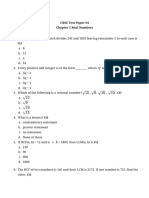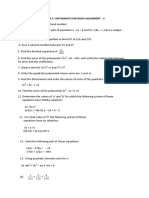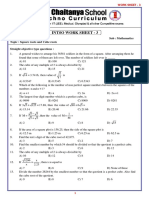0% found this document useful (0 votes)
10 views11 pagesC Program For Adavanced DAA0
The document contains multiple C programs that implement various algorithms including the 0-1 Knapsack Problem using memoization, the Travelling Salesman Problem using dynamic programming, Prim's Minimum Spanning Tree algorithm, and Kruskal's algorithm for finding the Minimum Spanning Tree. Each program includes necessary functions, initialization, and main execution logic to demonstrate the respective algorithm's functionality. The programs utilize arrays and recursion to solve optimization problems in graph theory.
Uploaded by
aditingun.2005Copyright
© © All Rights Reserved
We take content rights seriously. If you suspect this is your content, claim it here.
Available Formats
Download as DOCX, PDF, TXT or read online on Scribd
0% found this document useful (0 votes)
10 views11 pagesC Program For Adavanced DAA0
The document contains multiple C programs that implement various algorithms including the 0-1 Knapsack Problem using memoization, the Travelling Salesman Problem using dynamic programming, Prim's Minimum Spanning Tree algorithm, and Kruskal's algorithm for finding the Minimum Spanning Tree. Each program includes necessary functions, initialization, and main execution logic to demonstrate the respective algorithm's functionality. The programs utilize arrays and recursion to solve optimization problems in graph theory.
Uploaded by
aditingun.2005Copyright
© © All Rights Reserved
We take content rights seriously. If you suspect this is your content, claim it here.
Available Formats
Download as DOCX, PDF, TXT or read online on Scribd
/ 11
























































































